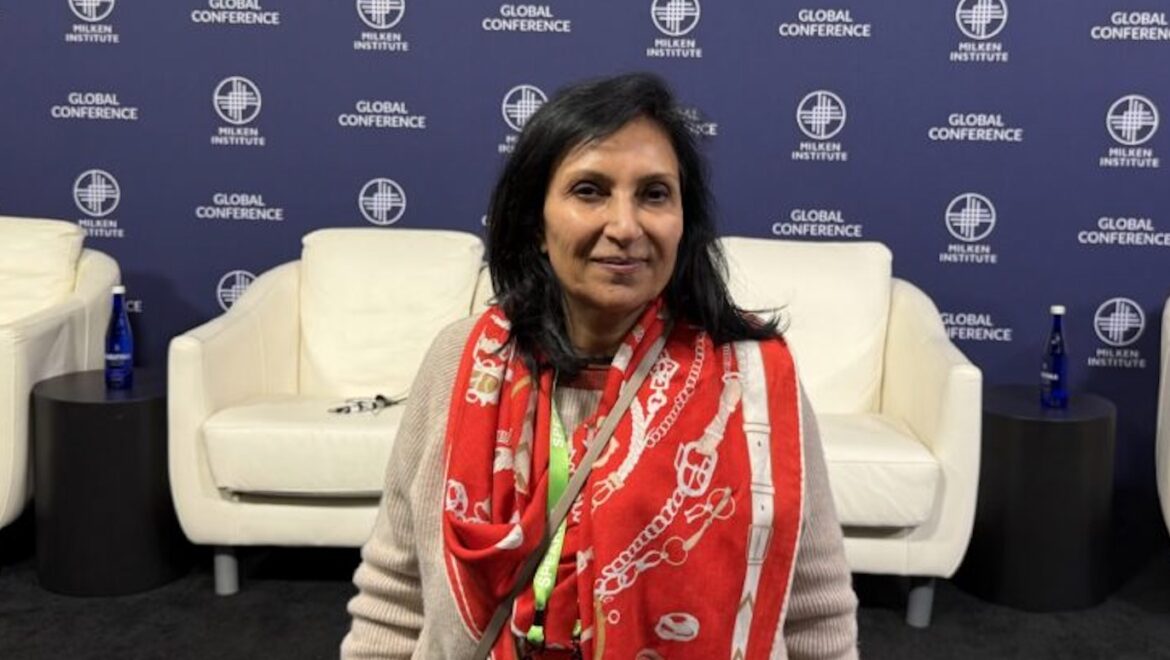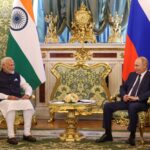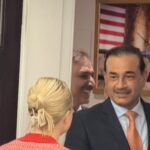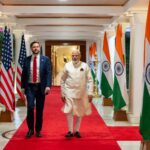Asha Jadeja, the first and biggest Indian American donor to the Republican Party, and a prominent Trump administration insider, has called on Indian Prime Minister Narendra Modi to personally reach out to President Donald Trump to resolve ongoing tariff and trade disputes.
Jadeja, who is the founder and president of the Motwani Jadeja Family Foundation, emphasized the urgency of a direct phone call between the two leaders to help finalize the trade deal.
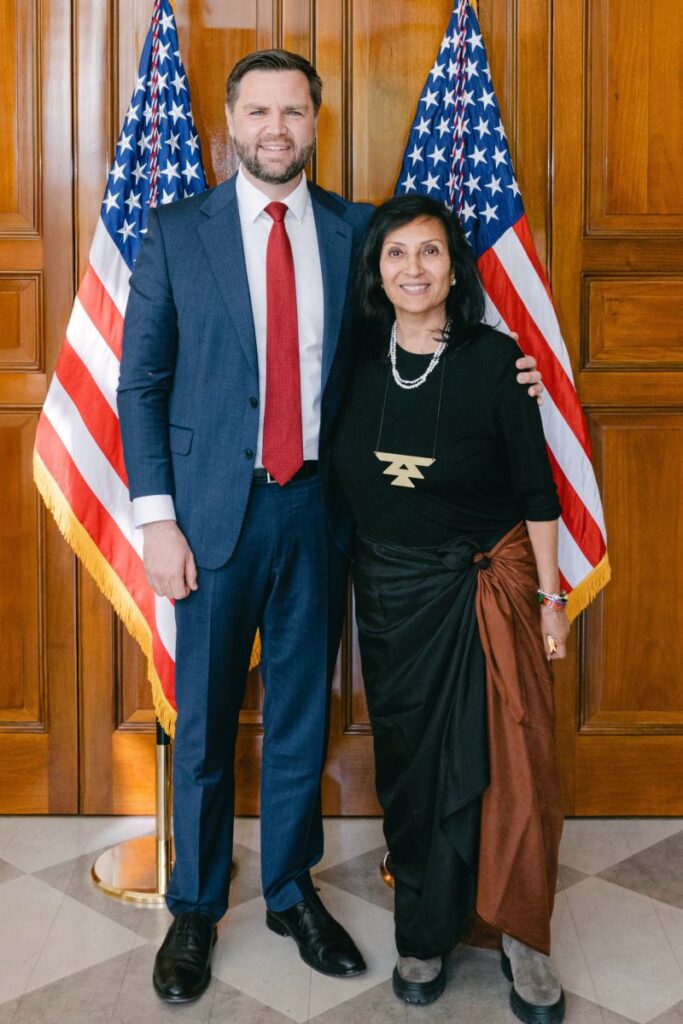
In an exclusive interview with South Asian Herald on August 6, 2025, Jadeja stated, “India should recognize that the United States is an important friend and do what is necessary to keep President Trump happy. All he [President Trump] wants is a phone call from PM Modi. It is crucial that somebody from the Indian team understands this and make it happen.”
Beyond the call, Jadeja suggested that India dispatch a high-level delegation to Washington, comprising senior members such as External Affairs Minister S. Jaishankar, Commerce Minister Piyush Goyal, and seasoned diplomats. She believes such a move would signal India’s seriousness in negotiating a successful agreement.
“The best way to deal with Trump is to really kind of show him that we are serious about making a deal. What the Indians do is the exact opposite, which is to go quiet. He hates it. Going quiet is something he can’t handle,” she explained.
Jadeja further noted the stark contrast between the Trump and Biden administrations, describing the former as a “one man show.” She stressed that the Indian government must focus its diplomatic energy on engaging Trump directly.
The Indian administration needs to know that they need to talk and tackle President Trump as a “personality.” Nobody else matters in the Trump’s team. The only person who matters is Trump, she said.
“This is not about tariffs or buying Russian oil; it’s something beyond that,” she cautioned.
She also criticized India’s failure to thank President Trump for his public claims that he was “responsible” for mediating a ceasefire between India and Pakistan, even if those claims were “not true.” However, she acknowledged, “it is true” that several key figures, including Secretary Marco Rubio and Vice President JD Vance, made multiple calls during the period.
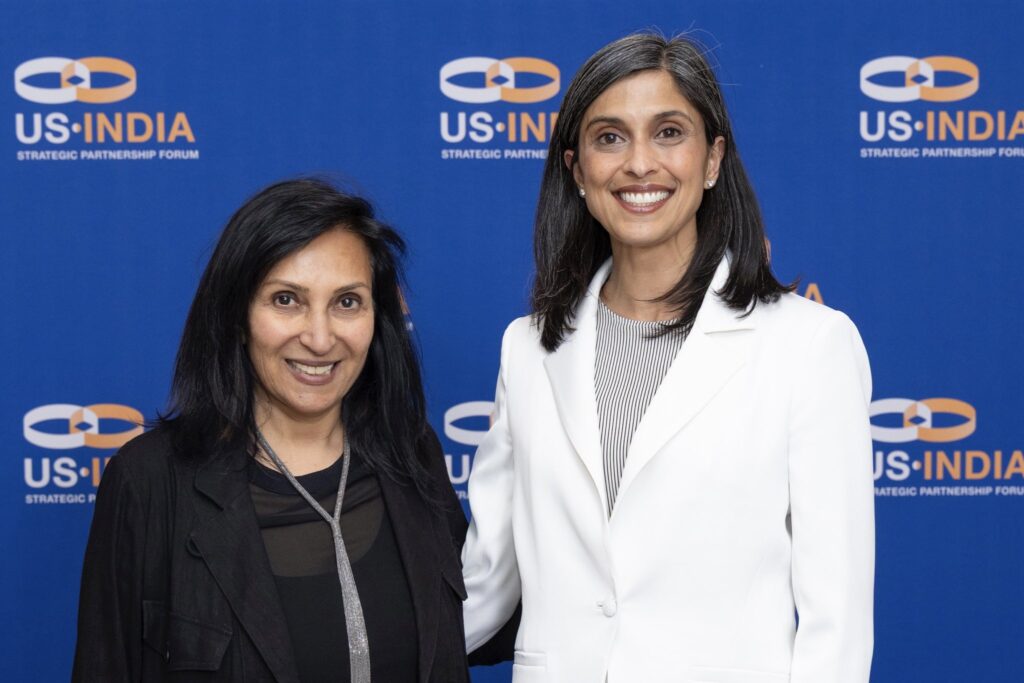
Jadeja further underscored the strategic importance of the U.S.-India relationship in countering China in the Indo-Pacific region. She cited growing defense cooperation, joint space missions, and shared democratic values as key pillars of the partnership. She urged New Delhi to highlight its unique diplomatic leverage with Moscow to position itself as a “peace builder” in the ongoing Ukraine-Russia conflict.
“The door is open because we are buying oil from Russia, and we are old friends of Russia,” she added. “India should reassure Trump that, look, because we are friends, and we’ve been there for a long time, since Cold War, let us use this opportunity to make sure that we build the peace which you want.”
Jadeja also questioned why India is not leveraging Prime Minister Modi’s recent visits to both Russia and Ukraine to frame a narrative of India as a peace-building force.
Additionally, she revealed that the Trump camp views India’s continued involvement in BRICS as a negative. According to her, the Trump administration would like India to exit the bloc. Jadeja agreed, asserting that BRICS offers “zero value” to India and that India should clarify to Trump that if the grouping undermines the U.S. dollar, India will reconsider its membership.
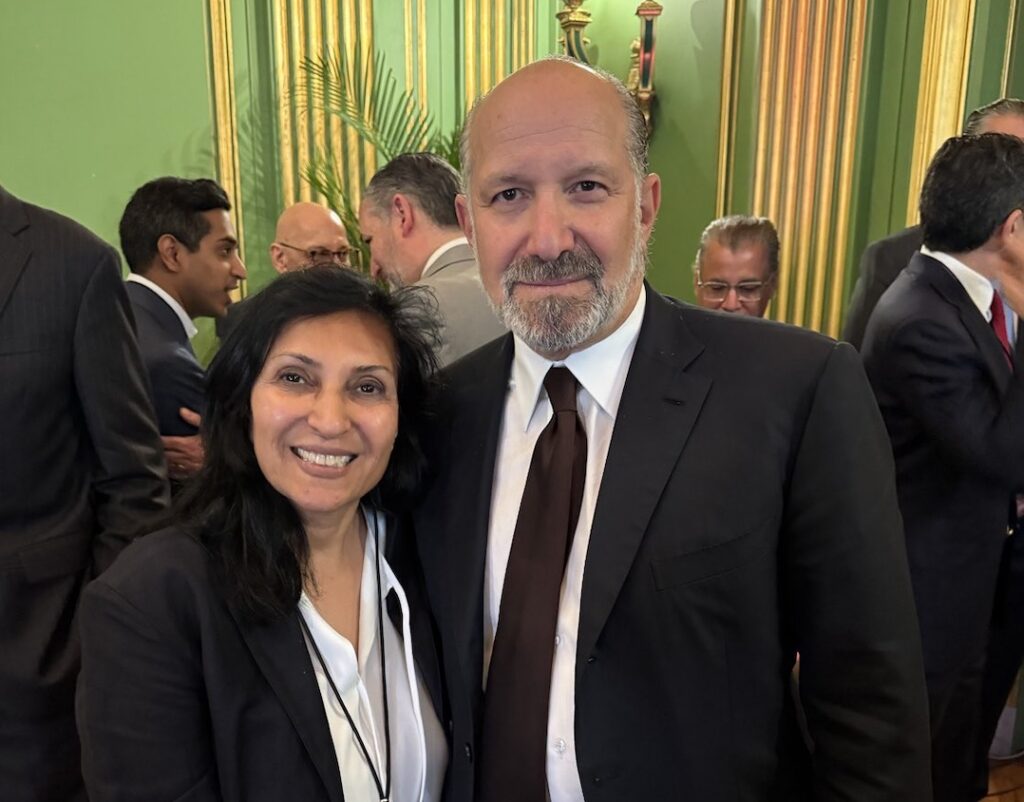
“We should reassure him that you’re right, that if BRICS hurts the dollar, this hurts India. We are not pegged to China. We are pegged to US,” she said adding “We have 6 million high powered Indians in the United States. There are no Indians in China.”
To strengthen people-to-people ties, Jadeja recently partnered with O.P. Jindal Global University to launch India’s first Institute for American Studies in New Delhi. The institute will offer programs in American history, politics, and culture, with visiting faculty from the United States.
When asked about the future of U.S.-India educational collaboration, Jadeja was optimistic. “That is going to only grow now,” she said, while advocating India to welcome more US universities. “These institutions should have the full freedom to go wherever they want. India needs to stop controlling,” she added.
The Motwani Jadeja Family Foundation currently supports several U.S.-India collaborative programs through institutions such as the Hudson Institute, the Center for a New American Security (CNAS), and the Hoover Institution. The Foundation is also in discussions with the RAND Corporation and Columbia University for future initiatives.


